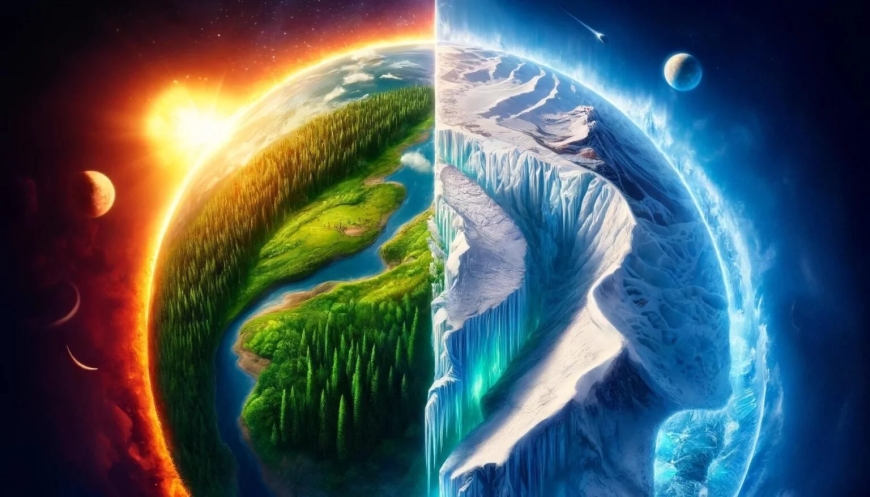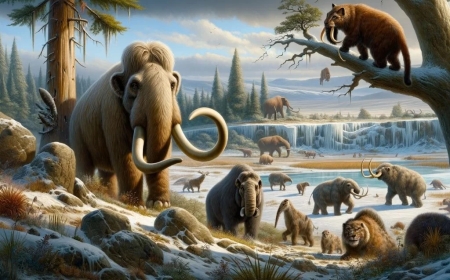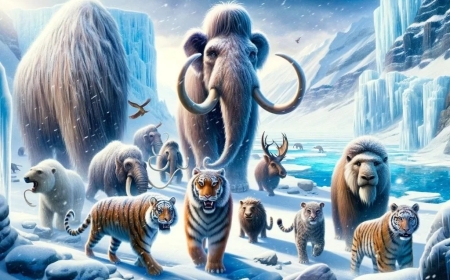When is the Next Ice Age Expected?

In the terrific account of our planet’s environmental history, one inquiry remains both captivating and basic: when is the next ice age expected? This question stimulates our interest in Earth’s future and holds basic experiences in grasping our planet’s complicated climatic frameworks. Throughout this article, we will dig into different parts of this convincing subject, investigating the logical forecasts and the interesting elements that administer Earth’s ice ages.
The Science Behind Ice Ages
Ice ages are significant stretches of diminished worldwide temperatures where huge regions of the surface are covered by mainland and polar ice sheets. Earth has encountered somewhere around five significant ice ages in its set of experiences, with the last one happening roughly quite a while back, denoting the finish of the Pleistocene age.
In any case, what causes these emotional changes in the planet’s environment? A few variables add to the beginning of the ice ages:
- Milankovitch Cycles: These are long-haul changes in Earth’s circle and slant, influencing how much sunlight-based energy our planet receives.
- Atmospheric Composition: Changes in ozone-harming substances like carbon dioxide can impact Earth’s temperature.
- Geographical Shifts: The development of mainland plates can modify maritime and airflow patterns.
- Volcanic Activity: Enormous scope emissions can deliver particles that block daylight, cooling the Earth.
These variables communicate in complex ways, frequently requiring millennia to change the Earth into an ice age. At present, we are in an interglacial period, a hotter stage between ice ages. In any case, this doesn’t imply that an ice age isn’t too far off.
Predictions of the Next Ice Age
Given the regular patterns of Earth’s environment, researchers have endeavored to foresee when the next ice age is expected. In light of the Milankovitch Cycles, the next frigid period is hypothetically due in around 50,000 years. In any case, human action, especially the emanation of ozone-depleting substances, has fundamentally modified Earth’s environment, possibly postponing the beginning of the next ice age.
- Human Impact: The expansion in CO2 levels because of human action could delay the next ice age.
- Natural Cycles: Notwithstanding human impact, Earth’s orbital mechanics keep on working, proposing that an ice age is unavoidable in the extremely lengthy term.
It’s essential to take note that these forecasts depend on current logical comprehension and may develop as we get familiar with Earth’s environment framework.
Implications for Humanity
The possibility of an ice age, while far off, conveys critical ramifications for mankind. A shift into a chilly period would decisively modify the planet’s geology and environment, influencing farming, framework, and biological systems.
- Global Cooling: A lessening in worldwide temperatures could grow polar ice covers, prompting a drop in ocean levels.
- Altered Climate Patterns: Changes in precipitation and temperature would influence crop development and water availability.
- Biodiversity: Species would have to adjust to evolving environments, prompting movement, elimination, or evolution.
Understanding and getting ready for these changes, regardless of whether they are centuries away, is critical in guaranteeing a maintainable future for our planet.
Contemporary Environmental Change and Ice Ages
A fascinating part of examining the next ice age is its connection to current environmental change issues. The fast warming we are encountering today is to a great extent a consequence of human exercises, like consuming non-renewable energy sources and deforestation. This warming might postpone or try and upset the normal cycles that lead to ice ages.
- Climate Paradox: The ongoing worldwide temperature alteration might appear to be in opposition to the idea of a looming ice age, however, they are essential for Earth’s drawn-out environment dynamics.
- Human Influence: Our activities today are essential in deciding Earth’s environment’s future, including the timing and nature of the next ice age.
This association highlights the significance of understanding and dealing with our effect on the world’s environmental framework.
Editor’s note…
All in all, the subject of when the next ice age is expected isn’t simply an oddity but a sign of the dynamic and steadily changing nature of our planet’s environment. While expectations recommend that an ice age is millennia away, our ongoing activities assume a vital part in forming Earth’s climatic future. As we keep on propelling comprehension we might interpret these mind-boggling frameworks, we genuinely should think about both the regular patterns of our planet and the effect of our activities on these cycles.
The next ice age, far off as it very well might be, fills in as an image of Earth’s tremendous and perplexing climatic cycles. It helps us to remember the force of nature and the obligation we hold as stewards of this planet. As we look towards the future, let us do as such with deference for the powers that have molded our reality and will keep on doing as such for ages to come.
What's Your Reaction?






































